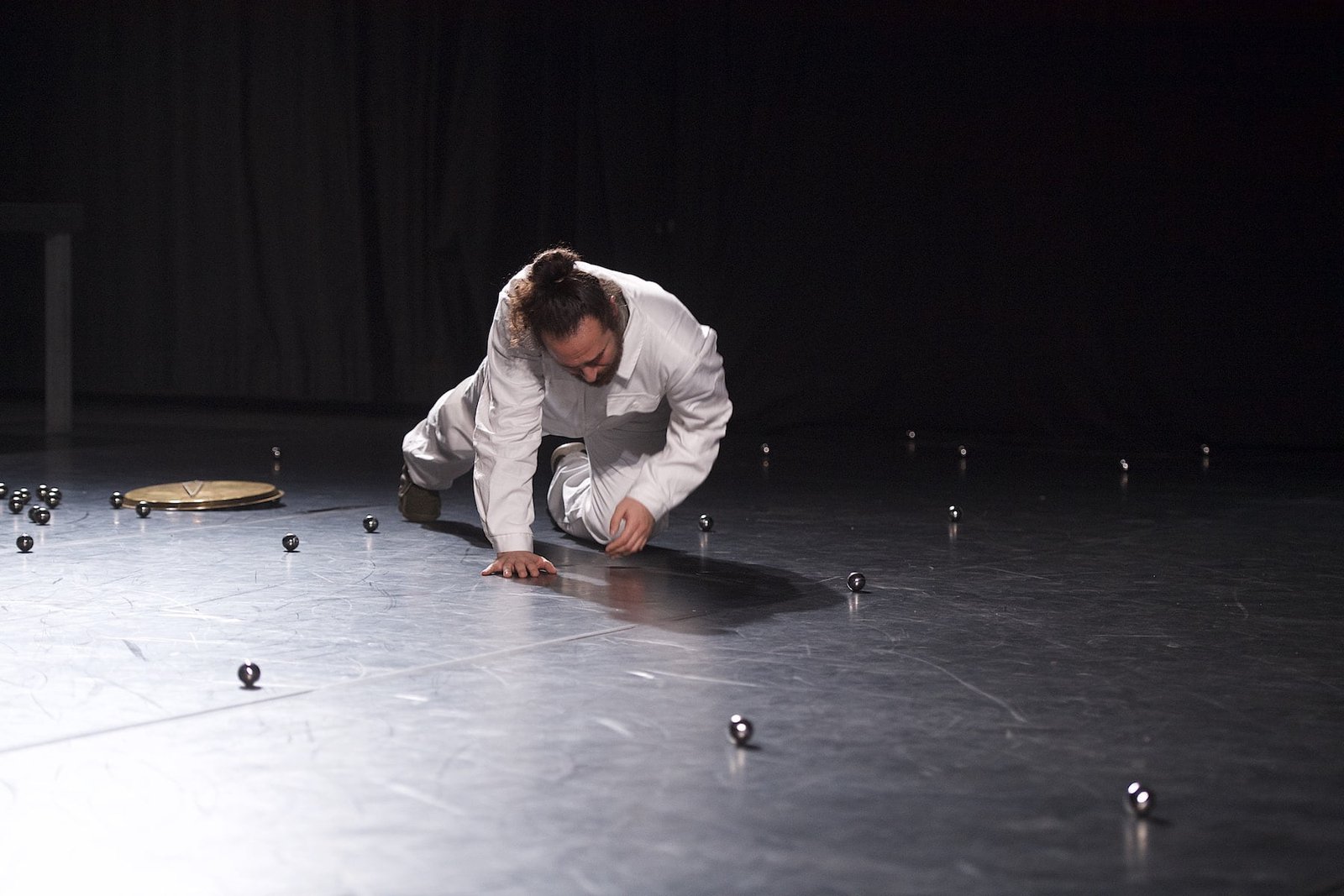Workshop
Freedom & Form

From the solo nigunim, photo by Dieter Hartwig
Freedom is hard. It demands an active engagement with one’s own desires & boundaries, and taking responsibility for the space one wants to co-create. First, in a political sense – democracy can only survive when citizens engage with it, and anarchist alternatives (in the positive sense of a society based on the understanding that human beings are inherently good) are even more work. Second, as an artist: the freedom to do absolutely anything can be challenging, overwhelming, and/or boring.
In the workshop, we will begin from somatic work and exercises around consent, to establish a safer space for exploration. Then we will play with scores based not only on ideas like Care and Equality, but also including playful approaches to ideas such as Hierarchy, Group Loyalty, and Taboos.* We will tap into tools from contact improvisation, choreography, BDSM, and sex-positive consent work to playfully explore the complexities and shadow sides of human interaction.
Structure can channel, discipline, form our freedoms in a way that helps generate ideas, artistic and otherwise. Rules can offer quite a lot of space, questioning our first impulses, and restricting us from doing “whatever”. The desire for hierarchy seems to be one of the fundamental evolutionary pillars of human morality, and is currently experiencing a global renaissance in the form of authoritarian political movements. And yet, “Freedom”, on a spectrum of definitions, is seen as a human right, a desirable goal, and for many artists, an essential aspect of their life, work, and self-identification. What do we mean when we talk about freedom? And how does this translate to practices within and outside of the studio? How can Form empower us as artists, players, thinkers, and humans?
*(a lot of these ideas are indebted to the work of moral psychologist Jonathan Haidt)